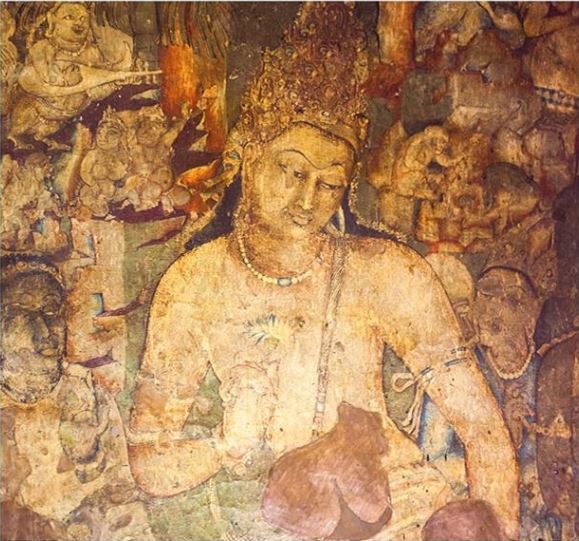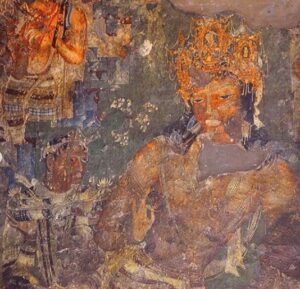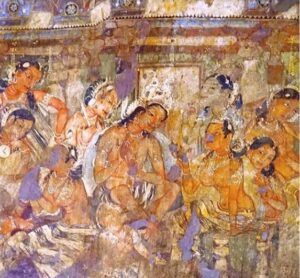1,500 year old Unesco murals from Ajanta

Discovered by English officers during a tiger hunt in 1819, the Ajanta caves are in such a remote spot that it was only in 1983 that they were declared a UNESCO World Heritage site.
For many years these paintings were called frescoes, but this is an erroneous term, and they are now referred to as murals, due to the fact that they were painted on a dry surface. Now you know! The majority of these murals are over 1,500 years old. It is extraordinary to think that ten centuries before the European Renaissance, these anonymous artists already knew the principles of perspective depth and realism in their art – thanks to the Chitrasutras!
Showcased aove is Padmapani, a Bodhisattva, holding a blue lily, showcased like a youthful king with luxury and charm, standing alongwith the princess, attendants, musicians, kinnaras animals like monkeys and birds. Stunning example of Rupa-Bheda principle from Chitra-sutra.

vajrApani : Another Bodhisattva masterpiece. Look at the intricate design of his Kirit or Tiara – complex filigree work is depicted with artistic perfection.

A scene from mahAjanaka jAtaka : Notice how the expressions and the emotions captured on the faces of the characters are amazingly real and modern!
